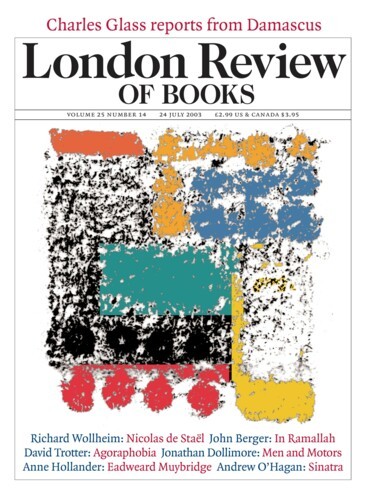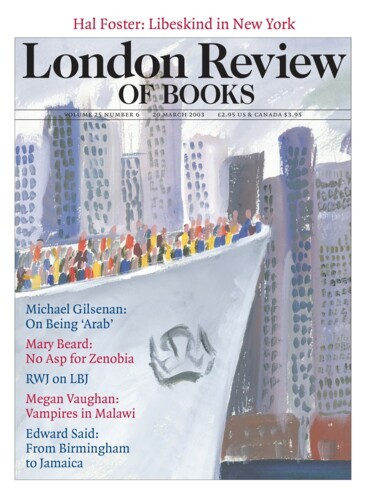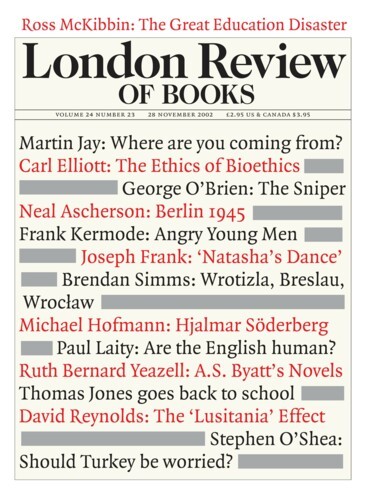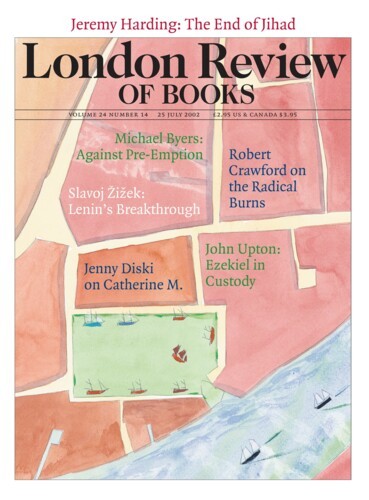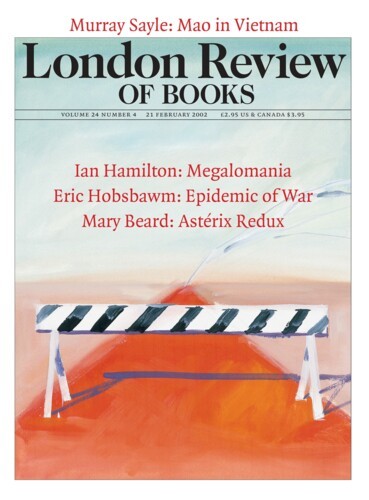Locked and Barred: Elizabeth Jennings
Robert Crawford, 24 July 2003
Like most poets, Elizabeth Jennings, who died two years ago, wrote too many poems. She was careless about her output, sending Michael Schmidt, her editor at Carcanet, ‘sacks’ of manuscript work to sift through and make into a collection. Even he seems occasionally to have lost track. His sympathetic and shrewd introduction records that her own favourite among her poems was...
